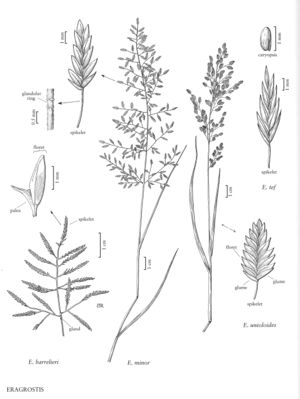Difference between revisions of "Eragrostis barrelieri"
FNA>Volume Importer |
imported>Volume Importer |
||
| (2 intermediate revisions by the same user not shown) | |||
| Line 4: | Line 4: | ||
|publications= | |publications= | ||
|common_names=Mediterranean lovegrass | |common_names=Mediterranean lovegrass | ||
| + | |special_status={{Treatment/ID/Special_status | ||
| + | |code=I | ||
| + | |label=Introduced | ||
| + | }} | ||
|basionyms= | |basionyms= | ||
|synonyms= | |synonyms= | ||
| Line 38: | Line 42: | ||
|publication title= | |publication title= | ||
|publication year= | |publication year= | ||
| − | |special status= | + | |special status=Introduced |
| − | |source xml=https:// | + | |source xml=https://bitbucket.org/aafc-mbb/fna-data-curation/src/200273ad09963decb8fc72550212de541d86569d/coarse_grained_fna_xml/V25/V25_135.xml |
|subfamily=Poaceae subfam. Chloridoideae | |subfamily=Poaceae subfam. Chloridoideae | ||
|tribe=Poaceae tribe Cynodonteae | |tribe=Poaceae tribe Cynodonteae | ||
Latest revision as of 17:56, 11 May 2021
Plants annual; tufted, without innovations. Culms (5)10-60 cm, erect or decumbent, much-branched near the base, with a ring of glandular tissue below the nodes, rings often shiny or yellowish. Sheaths hairy at the apices, hairs to 4 mm; ligules 0.2-0.5 mm, ciliate; blades 1.5-10 cm long, 1-3(5) mm wide, flat, abaxial surfaces glabrous, adaxial surfaces glabrous, sometimes scabridulous, occasionally with white hairs to 3 mm, margins without crateriform glands. Panicles 4-20 cm long, 2.2-8(10) cm wide, ovate, open to contracted, rachises with shiny or yellowish glandular spots or rings below the nodes; primary branches 0.5-6 cm, diverging 20-100° from the rachises; pulvini glabrous; pedicels 1-4 mm, stout, stiff, divergent, without glandular bands. Spikelets 4-7(11) mm long, 1.1-2.2 mm wide, narrowly ovate, reddish-purple to greenish, occasionally grayish, with 7-12(20) florets; disarticulation acropetal, paleas persistent. Glumes broadly ovate, membranous, 1-veined; lower glumes 0.9-1.4 mm; upper glumes 1.2-1.6 mm; lemmas 1.4-1.8 mm, broadly ovate, membranous, apices acute to obtuse; paleas 1.3-1.7 mm, hyaline, keels scabrous, scabridities to 0.1 mm, apices obtuse to acute; anthers 3, 0.1-0.2 mm, reddish-brown. Caryopses 0.4-0.7 mm, ellipsoid, not grooved, smooth to faintly striate, light brown. 2n = 40.
Distribution
Md., Kans., Okla., Colo., N.Mex., Tex., La., Utah, Calif., Puerto Rico, Virgin Islands, Ala., Nebr., Tenn., S.C., Mass., Ariz., Fla., Mo., Nev.
Discussion
Eragrostis barrelieri is a European species that is now naturalized in the Flora region, primarily in the south-western United States. It grows on gravelly roadsides, in gardens, and other disturbed, sandy sites, especially near railroad yards, at 10-2000 m. The ring of glandular tissue is most conspicuous below the upper cauline nodes.
Selected References
None.
